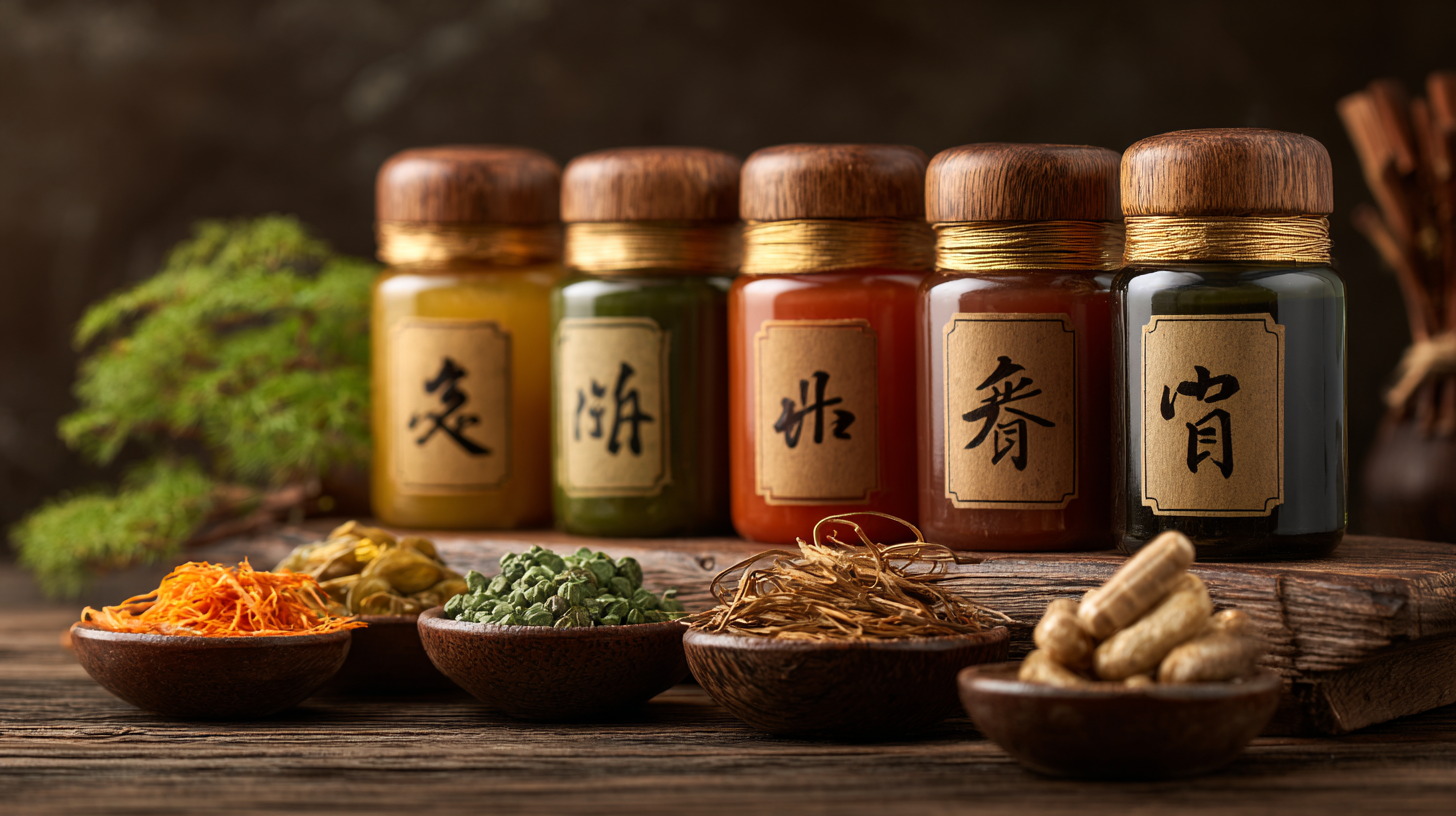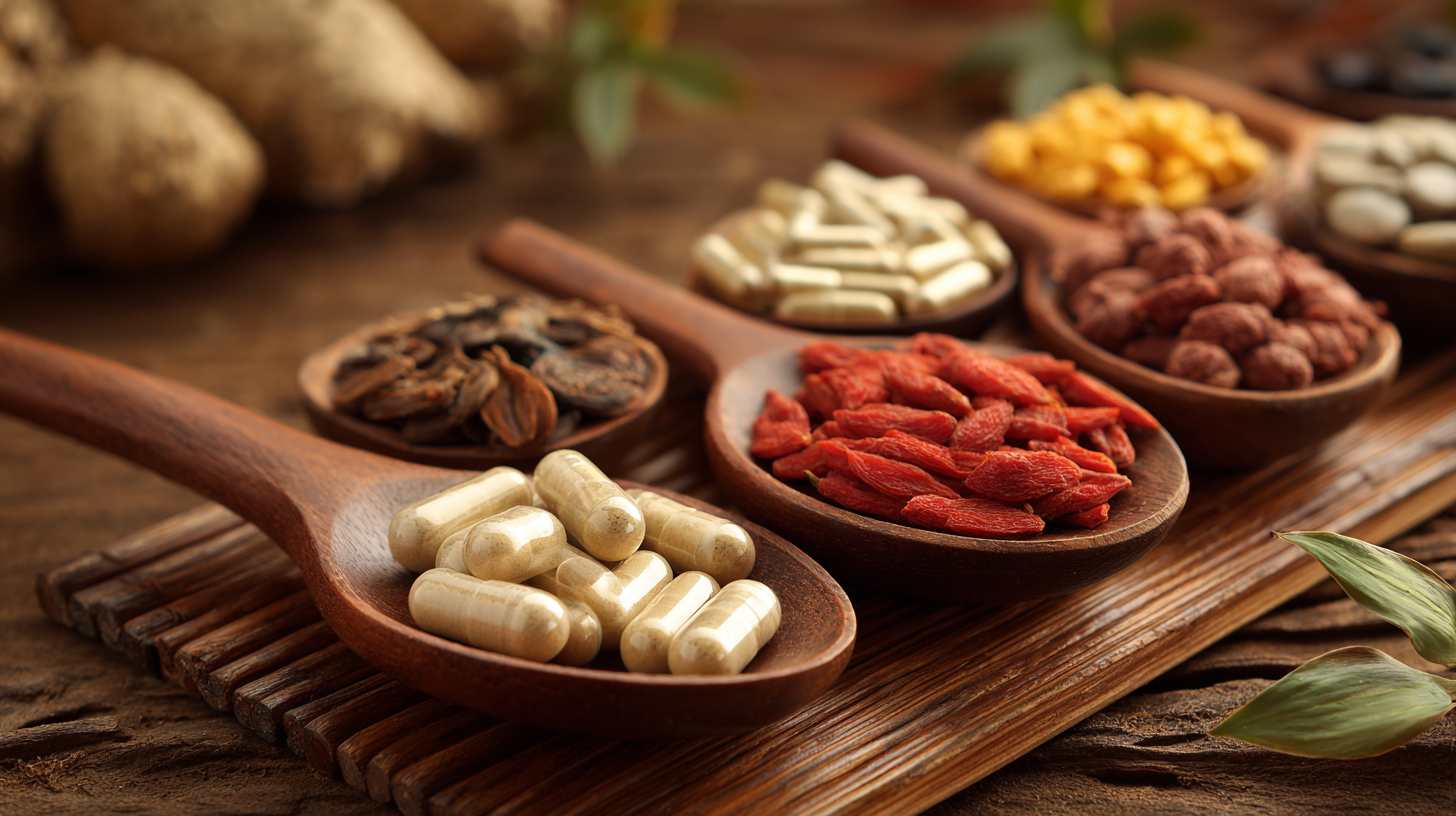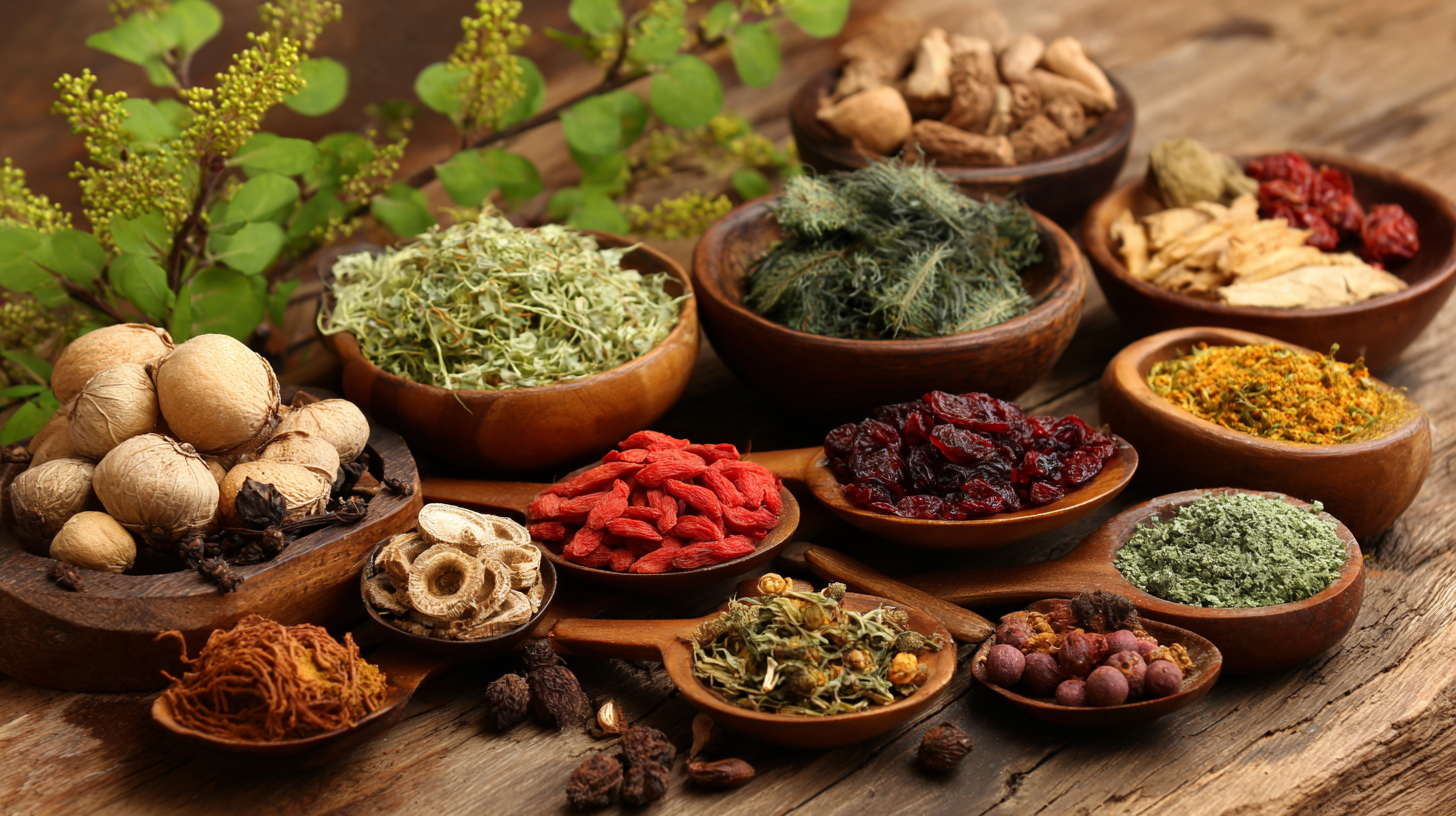Blog
Global Sourcing Excellence: China’s Best Natural Health Products Leading the World Market
 In recent years, the demand for Natural Health products has surged globally, driven by a growing awareness of health and wellness among consumers. A report from Grand View Research indicates that the global natural health products market is projected to reach $420 billion by 2024, a clear reflection of the shifting consumer preferences towards natural and organic alternatives.
China, with its rich heritage in herbal medicine and natural remedies, has emerged as a leader in this sector, producing some of the world's most sought-after health products. As consumers increasingly seek out the benefits of natural ingredients, China's innovative approaches and stringent quality standards position it at the forefront of the international market.
This blog post will explore the unparalleled advantages offered by Chinese Natural Health products, highlighting their efficacy, safety, and growing acceptance within the global health community.
In recent years, the demand for Natural Health products has surged globally, driven by a growing awareness of health and wellness among consumers. A report from Grand View Research indicates that the global natural health products market is projected to reach $420 billion by 2024, a clear reflection of the shifting consumer preferences towards natural and organic alternatives.
China, with its rich heritage in herbal medicine and natural remedies, has emerged as a leader in this sector, producing some of the world's most sought-after health products. As consumers increasingly seek out the benefits of natural ingredients, China's innovative approaches and stringent quality standards position it at the forefront of the international market.
This blog post will explore the unparalleled advantages offered by Chinese Natural Health products, highlighting their efficacy, safety, and growing acceptance within the global health community.
The Emergence of China's Natural Health Products in Global Markets
The emergence of China's natural health products in global markets is a significant trend that underscores the country's growing influence on the nutritional landscape worldwide. As the global nutrition market is projected to reach an impressive $458.55 billion in 2024, and expand to $986.85 billion by 2032, Chinese products are increasingly positioned to meet the demands of health-conscious consumers. This surge can be attributed to a robust focus on sustainability and innovation within China's health product sector.
To capitalize on this growth, consumers and businesses alike should consider the benefits of integrating natural and organic products into their daily routines. **Tip**: When selecting health products, look for those that prioritize clean ingredients and sustainable sourcing, as this not only supports personal wellness but also ecological balance.
Furthermore, as international markets open up, maintaining high standards of quality and transparency will be crucial. **Tip**: Engage with brands that provide clear information about their sourcing practices and ingredient origins to ensure you are making informed health choices. This approach can directly impact the support of eco-friendly initiatives and the promotion of a healthier global community.

Key Strategies for Sourcing High-Quality Natural Health Products from China
China has emerged as a powerhouse in the natural health products market, driven by rising global demand for health and wellness solutions.
According to a report by Grand View Research, the global herbal supplements market is expected to reach approximately $10.9 billion by 2025, with significant contributions from China, which produces over 50% of the world’s herbal products.
Sourcing high-quality natural health products from China requires careful consideration of established strategies to ensure the finest quality and compliance with international standards.
One effective strategy is to engage directly with manufacturers that adhere to Good Manufacturing Practices (GMP). Verifying certifications and conducting thorough audits can help mitigate risks associated with quality. Additionally, building strong relationships with suppliers can lead to better pricing and a more reliable supply chain.
For example, according to a survey by Statista, 65% of businesses reported improved product quality when maintaining long-term partnerships with suppliers.
Tips: Always request product samples before making large orders, as this allows verification of quality firsthand. Investing time in understanding the regulatory landscape, such as China’s National Food and Drug Administration (NMPA) guidelines, can also facilitate smoother sourcing processes and ensure compliance.
Innovative Trends in China's Natural Health Product Manufacturing
China is at the forefront of innovation in the natural health product manufacturing sector, driven by a rich heritage of traditional medicine and a burgeoning biotech landscape. With nearly 40% of today's pharmaceutical products stemming from natural sources, the integration of traditional knowledge with cutting-edge research has positioned China as a global leader in this field. As health consciousness escalates worldwide, the demand for natural health products continues to grow, reflecting a significant trend in the nutraceutical industry.
The Natural Health & Nutrition Expo in China exemplifies this momentum, showcasing innovative trends that combine traditional wisdom with modern manufacturing techniques. China's investment in biotechnological advancements has resulted in a surge of patent activities that surpass Europe in many areas, marking a dramatic shift in the global market landscape. As such, the country is not only enhancing its capabilities in creating effective health solutions but is also influencing global standards in quality and efficacy within the natural health sector. The evolution of these products underscores the country's commitment to sustainability, innovation, and a broader understanding of health and wellness.
Understanding Regulatory Standards for Exporting Chinese Health Products
Navigating the regulatory landscape for exporting natural health products from China requires a thorough understanding of both domestic standards and international requirements. Chinese regulators maintain stringent safety protocols, rejecting less than 0.5 percent of imported foods annually, reflecting a commitment to consumer safety that exporters must comply with when entering the market. To successfully export traditional herbal products, companies are mandated to obtain a Traditional Herbal Registration (THR) in the UK, ensuring that their products meet local safety and quality standards.

In addition to understanding China's complex food and beverage regulatory framework, businesses should also keep abreast of any recent legislative changes that may impact export controls. New regulations enhancing the management of dual-use items signal the necessity for exporters to adopt a proactive approach in compliance with international standards. As the global market increasingly leans towards natural health products, ensuring compliance with both national and international regulations is paramount for Chinese brands to maintain their competitive edge in the global marketplace.
Consumer Preferences Shaping the Future of Natural Health Products Worldwide
As global consumer preferences continue to evolve, the natural health products market is experiencing significant transformation. According to a report by Grand View Research, the global natural health products market is projected to reach USD 62.9 billion by 2028, growing at a CAGR of 5.4%. This growth is largely driven by increased consumer awareness of health and wellness, with more individuals preferring products derived from natural sources. Consumers are now gravitating towards herbal supplements, organic foods, and other natural alternatives, influencing manufacturers to align their offerings with these preferences.
To cater to these changing demands, companies should prioritize transparency and sustainability in their sourcing practices. Consumers increasingly favor brands that provide clear information about ingredient sourcing and production methods. For instance, a survey by McKinsey found that 78% of consumers are more likely to purchase from companies that share their sustainability values. Hence, investing in eco-friendly practices not only enhances brand loyalty but also meets consumer expectations.
Tip: Engage with your audience by highlighting the health benefits of your products through educational content. This not only builds trust but also positions your brand as a credible source in the natural health space. Additionally, consider leveraging social media to showcase customer testimonials and success stories, as these can significantly influence potential buyers' decisions.
Global Sourcing Excellence: China’s Best Natural Health Products Leading the World Market
| Product Category | Global Market Share (%) | Consumer Preference Rating (Out of 5) | Projected Growth Rate (2023-2028) (%) |
|---|---|---|---|
| Herbal Supplements | 35% | 4.5 | 8% |
| Vitamins and Minerals | 25% | 4.2 | 6% |
| Functional Foods | 20% | 4.7 | 10% |
| Probiotics | 15% | 4.8 | 12% |
| Essential Oils | 5% | 4.0 | 7% |